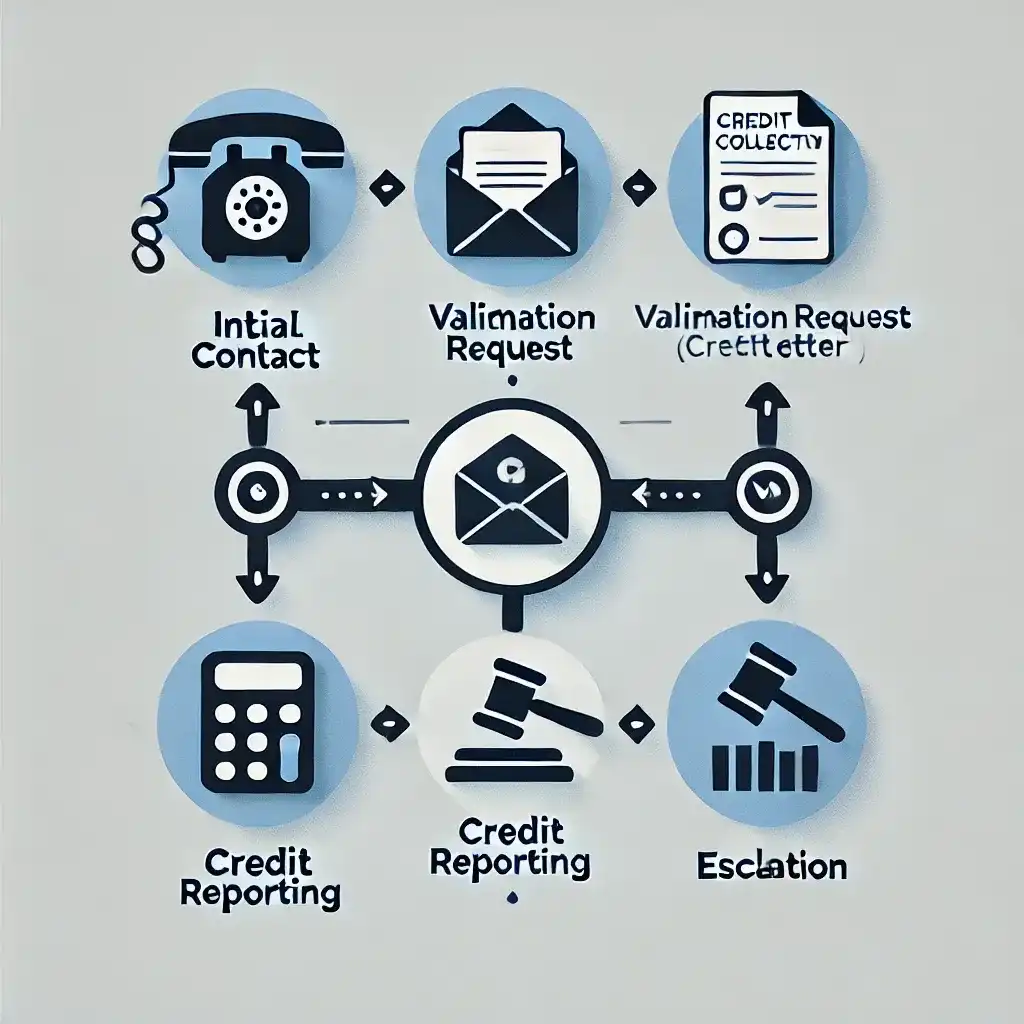Genesis Credit Management: Scam or Legit? An In-Depth Investigation
Introduction

Picture this: your phone buzzes with an unknown number, and a stern voice from Genesis Credit Management claims you owe money on a debt you don’t even recognize. Or maybe a letter lands in your mailbox, threatening credit score damage if you don’t pay up fast. If this sounds familiar, you’re probably asking yourself: Is Genesis Credit Management a legit operation, or am I being scammed?
Debt collection agencies have a notorious reputation—think relentless calls, shady tactics, and financial stress. Every year, the Federal Trade Commission (FTC) logs thousands of complaints about collectors, and Genesis Credit Management isn’t immune to the spotlight. In this deep-dive guide, we’ll peel back the layers of this third-party debt collector—its operations, legal footing, real-world consumer experiences, and warning signs—so you can decide if it’s a trustworthy entity or a headache to avoid.
What Exactly is Genesis Credit Management?

Genesis Credit Management is a third-party debt collection agency, a middleman hired by creditors—think banks, credit card companies, or even your old phone provider—to recover past-due balances. Their job? Track you down via phone calls, emails, or snail mail, negotiate payments, and, if you don’t comply, report your delinquent account to credit bureaus like Experian or Equifax.
The Basics You Need to Know:
- Core Focus: Chasing down unpaid debts that original creditors have given up on.
- How They Operate: Using debt recovery tools—calls, notices, and credit reporting leverage.
- Impact on You: A hit to your FICO score if the debt lingers unresolved.
- Legal Framework: Governed by the Fair Debt Collection Practices Act (FDCPA), which sets strict rules for fair debt handling.
Think of them as the financial world’s bounty hunters—except instead of handcuffs, they wield payment demands and credit threats. But are they playing by the rules? Let’s find out.
Genesis Credit Management: Scam or Legit? Digging into the Evidence

Genesis Credit Management isn’t some fly-by-night operation—it’s a registered business with a real address and tax ID. But legitimacy doesn’t mean flawless. Consumer reviews paint a messy picture: some praise its debt resolution options, while others cry foul over harassment claims and bogus debt charges. So, is it a scam or just a poorly behaved collector? Let’s break it down.
What People Are Saying (The Bad):
📌 Phantom Debts: Imagine getting a call about a $500 credit card bill from 10 years ago you never opened. Consumers report Genesis chasing non-existent debts, a classic red flag tied to debt collection scams. 📌 Harassment Overload: Picture this—five calls before noon, threats of lawsuits, or even intimidation tactics like “pay now or we’ll garnish your wages.” These stories pop up frequently. 📌 Credit Report Nightmares: Folks have found outdated debt entries or flat-out wrong amounts on their reports from TransUnion or Equifax, tanking their creditworthiness without warning. 📌 Validation Dodges: Ask for debt proof, and some say Genesis either drags its feet or sends vague, useless paperwork.
The Flip Side (The Good):
✅ Debt Settlements: Take Sarah from Ohio—she owed $2,000 on an old medical bill. Genesis offered a flexible repayment plan, cutting it to $1,200 if paid in six months. She’s debt-free now. ✅ Legal Adherence: Many interactions include written debt notices, as required by FDCPA, showing they’re not entirely rogue.
The Verdict:
Genesis Credit Management is a legitimate debt collector, not a scam in the legal sense. But its aggressive collection strategies and credit reporting errors have left a trail of frustrated consumers. It’s not about whether they exist—it’s about whether their tactics cross the line.
Legal Standing: Where Does Genesis Stand?

Debt collectors don’t operate in a free-for-all Wild West—they’re bound by federal laws designed to protect you. Genesis Credit Management has had its share of legal scrutiny and consumer lawsuits, raising questions about its compliance track record.
Laws They Must Follow:
📌 FDCPA: No abusive collection practices—that means no 3 a.m. calls, no lies about jail time, and no bullying. 📌 CFPB Regulations: The Consumer Financial Protection Bureau demands transparent debt practices and fair treatment. 📌 FCRA: Ensures accurate credit reporting—if they report a debt you don’t owe, they’re breaking the law.
Trouble Spots:
- CFPB Complaints: By late 2023, Genesis racked up complaints for unfair debt tactics and sloppy validation (CFPB Complaint Database). One user reported 15 calls in a week over a $200 debt already paid.
- Lawsuits: Small-scale cases have popped up—like a 2022 suit in Texas alleging FDCPA breaches for pursuing a debt past the statute of limitations.
If Genesis steps over the line with you, the FTC or your state attorney general’s office can step in. You’re not powerless.
How to Deal with Genesis Credit Management Like a Pro

So, Genesis is on your tail—what now? Don’t panic. Here’s a battle-tested playbook to protect your financial health and keep them in check:
✅ Demand Verification: Under FDCPA, you’ve got 30 days to request a debt validation letter. It should list the creditor, amount, and proof it’s yours. No proof? Don’t pay. ✅ Know Your Shield: Collectors can’t use unlawful threats (e.g., “We’ll arrest you”) or fake deadlines. If they try, call them out. ✅ Negotiate Smart: Say you owe $1,000—offer $600 as a lump sum or a debt reduction plan. They often settle for less to close the file. ✅ Monitor Your Credit: Grab your free report from AnnualCreditReport.com weekly (thanks to COVID-era rules). Spot an error? File credit disputes with all three bureaus. ✅ Bring Backup: If it’s overwhelming, hire credit counselors (try NFCC.org) or a consumer lawyer.
Real-Life Tip: John from Florida recorded a call where Genesis threatened jail over a $300 debt. He sent a complaint to the CFPB with the audio—calls stopped within a week.
Inside Their Collection Process: Step-by-Step

Genesis follows a debt recovery roadmap that’s predictable if you know what to look for:
- Initial Contact: A call or letter hits your inbox about an unsettled balance—e.g., “You owe $750 from a 2019 store card.”
- Validation Window: You’ve got 30 days to demand debt verification. Without it, they can’t legally force payment.
- Credit Hit: Ignore them, and the debt lands on your credit file, slashing your score by 50-100 points depending on your history.
- Escalation Mode: They might send legal notices or push for wage garnishment—but only if they sue and win in court.
Expert Insight: Old debts past the statute of limitations (3-6 years, varies by state) can’t be enforced. Genesis might still try, but you can tell them to pound sand—legally speaking.
1. What’s Genesis Credit Management All About?
Genesis Credit Management is one of those debt collection agencies that tracks people down over unpaid bills. You know the type—they call you up, send letters, or even ping your credit report to nudge you into paying what you supposedly owe. They’re working for creditors who’ve given up on collecting themselves, like banks or credit card companies.
2. Is Genesis Credit Management a Scam or the Real Deal?
Okay, here’s the scoop: Genesis Credit Management is a legit company, not some shady scam cooked up in a basement. But—and this is a big but—some folks say they can get pretty pushy, which makes people suspicious. My advice? Double-check any debt they claim you owe before you hand over a dime.
3. Why’s Genesis Credit Management Blowing Up My Phone?
If they’re calling you nonstop, it’s probably because they think you owe money. Maybe it’s an old credit card bill or a medical tab you forgot about. Don’t just take their word for it, though—ask for a debt validation letter to make sure it’s actually yours.
4. How Do I Get Genesis Credit Management to Leave Me Alone?
Want them off your back? Write them a cease and desist letter—it’s like a polite “stop calling me” note with legal teeth. Just heads-up: this won’t wipe out the debt. They could still sue you or mess with your credit report, so it’s not a total escape hatch.
5. Can Genesis Credit Management Drag Me to Court?
Yep, they can sue you if the debt’s real and still within your state’s statute of limitations—usually a few years, depending on where you live. If you get a court notice, don’t ignore it! Respond fast and maybe chat with a lawyer to figure out your next move.
6. Will Genesis Credit Management Tank My Credit Score?
If they report your debt to the credit bureaus—like Experian or TransUnion—it could definitely ding your score. The good news? Pay it off or dispute it, and you can ask them to take it off your report. It’s not a guaranteed fix, but it’s worth a shot.
7. How Do I Push Back on a Debt from Genesis Credit Management?
Not sure the debt’s legit? Send them a debt validation letter within 30 days of their first contact—it’s your right! If they can’t prove it’s yours with solid evidence, they have to back off. No proof, no problem—at least for you.
8. What Rights Do I Have Under the FDCPA?
The Fair Debt Collection Practices Act (FDCPA) is your shield here. It says Genesis can’t harass you, lie about what you owe, or ring your phone at crazy hours—like 3 a.m. You can demand proof of the debt in writing and tell them to shove off if they’re breaking the rules.
9. What If Genesis Credit Management’s Crossing the Line?
If they’re pulling stunts like constant threats or fake scare tactics, don’t just sit there—fight back! File a complaint with the Consumer Financial Protection Bureau (CFPB) online—it’s super easy. Or, if it’s bad enough, talk to a lawyer who knows debt collection laws. They can’t just do whatever they want.
10. How Do I Kick Genesis Credit Management Off My Credit Report?
Getting them off your credit report isn’t magic, but you’ve got options:
- Pay It Off: Settle the debt and beg for a “pay-for-delete” deal—some collectors agree to erase it if you pay up.
- Dispute It: If it’s wrong or not yours, challenge it with the credit bureaus—think Equifax, Experian, TransUnion.
- Wait It Out: If the debt’s ancient (past the statute of limitations), it might just fall off after 7 years. Check your state laws, though!
Conclusion

Genesis Credit Management isn’t a scam in the shadows, but it’s no saint either. Its track record—peppered with harassment reports, credit inaccuracies, and legal dust-ups—screams for caution. If they’re knocking, arm yourself with knowledge: verify every claim, flex your consumer rights, and guard your credit profile like it’s gold. They’re legit, sure—but they’re not your friend.
🚀 Ever tangled with Genesis Credit Management? Spill your story in the comments—I’m all ears!